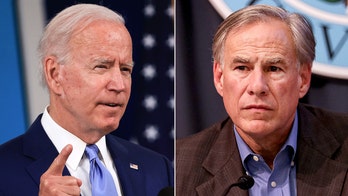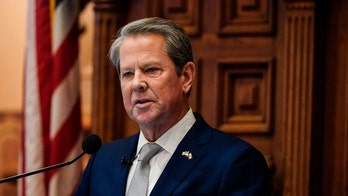Congress may be scrambling for ways to shrink the deficit while drawing phantom funds from the federal government's empty wallet, but a new study from the Center for Responsive Politics suggests that the nation's financial hole hasn't swallowed their personal piggybanks.
Despite an ailing economy, congressional lawmakers' personal wealth increased by more than 16 percent between 2008 and 2009, according to a study of federal financial disclosures conducted by the nonpartisan research center.
Nearly half of the legislators claim assets of over $1 million, a chunk of change claimed by only one percent of Americans. That's up from last the previous year's numbers, the study finds. Fifty-five of the 261 congressional millionaires in 2009 enjoyed an average calculated wealth of $10 million or more. Eight are worth $100 million-plus.
At a median wealth of close to $2.38 million in 2009, the U.S. Senate is richer than the House. Its members' median wealth was $765,010. The median for both chambers in 2009 increased to $911,510 from 2008's $785,515.
According Center for Responsive Politics calculations, California Republican Rep. Darrell Issa's personal wealth tops the list of the richest members with holdings topping $303.5 million and fellow Golden State Rep. Jane Harman (D) is close on his heels with $293.4 million. Sen. John Kerry (D-MA) comes in third at $238.8 million.
Between 2008 and 2009, Issa, Harman and Kerry reported increased wealth to the tune of 21 percent, 19.8 percent, and 14.3 percent, respectively.
Among the wealthiest members, Democrats and Republicans are almost evenly represented. In the House, five Democrats and five Republicans make the top 10. Six Democrats and four Republicans complete the top 10 wealthiest list on the Senate side.
But not every member of the legislative body enjoys a steady stream of cash.
Because his liabilities outweigh his assets, Florida Democratic Rep. Alcee Hastings' average calculated wealth in 2009 was less than zero, amounting to negative $4.73 million. Reps. John Salazar (D-CO) and Nydia Velazquez (D-NY) also have an average calculated wealth in negative territory.
The minimum and maximum wealth values of Reps. Louis Gohmert Jr. (R-TX), Patrick Murphy (D-PA), Dan Maffei (D-NY), Artur Davis (D-AL), Gregory Meeks (D-NY), and Mario Diaz-Balart (R-FL) were all below zero.
Diaz-Balart's fluctuation in wealth, at a more than 506 percent drop between 2008 and 2009, leads the list of lawmakers who experienced wild swings in personal holdings during that time period.
Rep. Charles Rangel (D-NY), who is charged with improper disclosure of personal finances along with ten other ethics violations, reported an above average income level for a House member, at $872,006 in 2009.
As for the sources of congressional wealth, like the rest of Americans, lawmakers derive their personal assets from a variety of sources. But the most popular investment is General Electric stock, at 82 members. Other popular corporate recipients of congressional investment include Bank of America (63 members), Cisco Systems (61 members), Proctor & Gamble (61 members) and Microsoft (54 members).
At least 20 lawmakers reported stakes in health care-related companies such as Pfizer and Amgen, as well as in financial firms affected by financial regulatory reform measures, among them Goldman Sachs and JPMorgan Chase.
Members of Congress report their assets in broad ranges, and the Center for Responsive Politics uses minimum and maximum possible asset values to calculate each member's estimated wealth.




